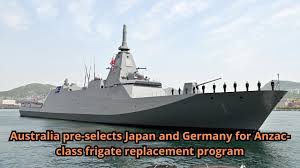
Australia’s new frigate: Japan or Germany may be the final candidate
– Spanish and Korean companies excluded from bidding
– Final bidding to be held between TKMS and Mitsubishi
Summary from Kyodo News.
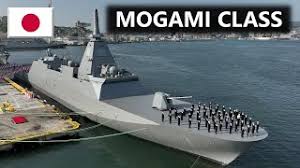
Australian public broadcaster ABC:
On November 8, the candidates for the joint development of the new Australian Navy ship were narrowed down from four countries to Japan and Germany.
South Korea and Spain were removed from the list. The final co-development country will be decided next year.
Japan is considering basing the ship on the Maritime Self-Defense Force’s state-of-the-art escort ship “FFM” (Mogami-class).

Australian Defense Minister Marles:
The plan is to deploy 11 new ships.
The total cost is expected to be 11.1 billion Australian dollars (approximately 1.13 trillion yen).
The Australian military is suffering from a chronic shortage of soldiers.
Japan’s Mogami-class can be operated by about 90 people, half the number of conventional escort ships.
https://www.tokyo-np.co.jp/article/365561
Australian Navy frigate procurement: Spanish and Korean companies to be excluded from bidding
Summary from article published in Grandfleet.
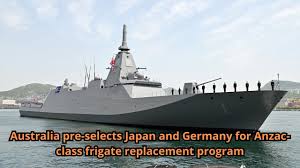
Australian Department of Defence’s procurement of new frigates:
In June 2024, a request for information was sent to shipbuilding companies in Germany, Spain, Japan and South Korea for the procurement of general-purpose frigates.
Australian Security Committee recommendation:
The Security Committee recommended the Australian government to exclude Navantia, Hyundai Heavy Industries and Hanwha Ocea from the bidding.
On November 7, Australian media reported that “Spain and South Korea will be excluded from the bidding. A final bid will be held between TKMS and Mitsubishi.”
Meanwhile, in Europe, Fincantieri has put its name forward to acquire TKMS.
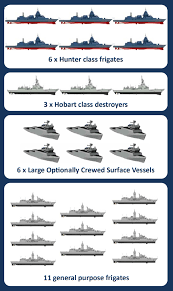
Albanese government’s plan:
The Australian government announced the results of its analysis on naval restructuring in February of this year.
The report calls on the government to “double the surface fleet.”
1. Reduce the number of Hunter-class frigates to be acquired from nine to six,
2. Reduce the number of Arafura-class patrol vessels to be acquired from 12 to six.
Recommendation: Acquire large unmanned vessels (six vessels) that can also be operated manned, and general-purpose frigates (eleven vessels).
Project Sea 3000 Selection:
1. The selection will be made in 2025, and the first vessel, built overseas, is scheduled to be commissioned in 2030.
2. The fourth to sixth vessels, built in Australia, will have the same specifications.
It has not been decided what the specifications will be for the seventh vessel and beyond.
Preparation for bidding in each country:
Japan’s preparations:
Companies that receive orders for this program “must deliver three domestically built vessels by 2030.”
1. In Japan, “Mitsubishi Heavy Industries, backed by the government,” is challenging the Australian bid.
2. Japan is likely to take on the challenge with an all-Japan effort to ensure smooth delivery.
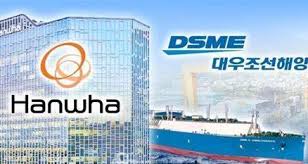
Korea’s posture:
Hyundai Heavy Industries and Hanwha Oceana aim to participate in the bidding battle as one team.
On the other hand, the two companies are at odds over the KDDX confidential information leak lawsuit, making it impossible for them to build a cooperative relationship.
Lack of frigate construction docks:
In Korea, Hyundai Heavy Industries has only two docks for frigates and special ships, and Hanwha Ocean has only one.
1. Even if the order is received, the deadline will not be met unless the two companies build separately.
2. It is risky for one company to take full responsibility for three ships built domestically and eight ships built overseas.
Germany’s posture: Article from the Australian Financial Review
Regarding the German proposal,
1. The MEKO A-200 design is familiar, being a larger, more modernized version of the Anzac-class frigate.
2. Taking into account TKMS’s export experience, it is considered a low-risk option.
Fincantieri enters the TKMS acquisition race:
In Europe, Fincantieri has put its name forward to acquire ThyssenKrupp’s naval division, TKMS.
There is also a possibility that Italy will be the ultimate winner.
US investment company Carlyle:
It was considering acquiring ThyssenKrupp’s naval division, TKMS, but withdrew by October 2024.
1. Fincantieri declared at EURONAVAL 2024 that it can offer its strength to the German government.
2. If the acquisition goes through, TKMS’ parent company will change from ThyssenKrupp to Fincantieri.